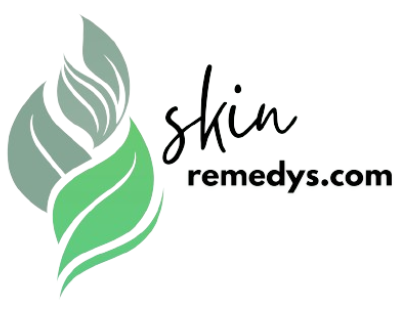
Introduction:
In this article we will deceased of how can i keep my skin healthy you find this topic so I am here don’t worry in this article complete information about how can i keep my skin healthy lets start our topic.
1. Understanding Your Skin Type
Your skin type is the foundation of a tailor-made, skincare regimen. There are usually four main skin types: oily, dry, combination and sensitive. Assistance to all types is distinct and requires various tools.
- Oily Skin: The skin is oily to shiny and with pimples, blackheads or white heads.
- Dry Skin: Feels restrictive or flaky due to dryness.
- Combination Skin: Shows signs of BOTH oily skin and dry skin, usually oil in the T-zone (nose, forehead and chin) but not on their cheeks.
Knowing your skin type, in general it helps you choose products and treatments that will give the best results for healthy looking skin.
2. Essential Daily Skincare Routine
If you have a good regular day, then it will be helpful in health management of their skin. Following is an easy routine that fits most skin types:
Cleansing
Begin with a mild cleanser according to your skin. Cleansing helps to wash away dirt, oil and other impurities that can block the pores from breaking out. If you have oily or acne-prone skin, opt for a cleanser containing salicylic acid. Hydrating, fragrance-free cleansers help dry or sensitive skin
Toning
These help balance the skin pH levels thus enabling your product to be absorbed more effectively. To minimize damage, choose alcohol-free toners that will not remove the natural oils from your skin. Witch hazel, rose water or green tea extract are good.
Moisturizing
All skin types especially oily the next thing you need to do is moisturize your face. A lightweight, non-comedogenic moisturizer will help stop up your pores. Choose heavier creams that deliver deep hydration if you have dry skin I swear by Clinique Moisture Surge, which is packed with hyaluranic acid to ensure moisture remains locked in forcefully.
Sun Protection
While it is important to note that sunscreen should be applied every single day, come rain or shine and regardless of skin colour. Make sure to apply a broad-spectrum sunscreen of minimum SPF 30. UV radiation causes UV damage, leading to premature skin aging or photoaging, sunburn (erythema) and an increased risk of skin cancer.
3. Advanced Skincare Treatments
For those after an upgrade to their basic skincare, think about introducing medical treatments:
Exfoliation
This will help your skin to get rid of dead skin cells exfoliating 2-3 times a week, and revealing fresh glowing skinner human. Physical Exfoliants ( ie, scrubs) or Chemical – AHAs/BHAs Be careful when exfoliating, particularly if your skin is sensitive.
Serums and Treatments
Serums are powerful products designed to address specific skin issues – from fine lines and hyperpigmentation, to acne. Key ingredients include:
- Vitamin C: Illuminates skin and prevents hyperpigmentation
- Retinoids: Stimulate cellular turnover & decrease fine lines.
- Niacinamide: Anti-inflammatory properties; Oil control
Face Masks
Use clay masks once a week for added benefits. Oily skin will love clay masks, while dry skill folks want those hydrating ones. If it sounds like relaxation is more your thing, search for sheet masks containing ingredients such as hyaluronic acid, aloe vera or green tea.
4. Diet and Hydration
By eating right, you can help maintain good skin. Eat a diet high in skin-supporting antioxidants, vitamins, and minerals to balance your skin from the inside out.
Foods for Healthy Skin
- Antioxidants: Antioxidants (berries, dark leafy greens and nuts); these ingredients help protect the skin from damage.
- Omega-3 Fatty Acids: These fats – found in fish, flaxseed and walnuts – help maintain your skin barrier function.
- Vitamin C: Citrus Fruits, bell peppers & broccoli aswell(collagen production)
Hydration
It helps maintain the elasticity and texture of your skin so maintaining proper hydration is key. Make sure you drink at least 8 glasses of water a day * Modules (appetite and hunger fullness), all while fulfilling the modules for weight loss. Being that herbal teas and fruit are full of water (like cucumbers, which share the same family as melon) also help.
5. Lifestyle Factors Influencing Skin Health
The state of your skin is determined by the choices you make every day and how healthy those habits are. Consider these factors:
Sleep
Restful sleep, also known as “beauty rest”, is necessary for skin repairs and regenerations. Strive for 7 to 9 hours of high-quality sleep each night.
Stress Management
Inflammation Chronic stress can make skin issues like acne, eczema,& & psoriasis worse. Practice stress-reducing activities like yoga, meditation or deep breathing on a regular basis.
Avoiding Harmful Habits
When you indulge in smoking and too much alcohol intake, this can hasten aging of the skin as well produce more harms. Stopping smoking and reducing alcohol: Most important for getting healthier skin
6. Regular Skin Check-ups
You should visit to a dermatologist regularly have fan of skin cancer or other conditions which are important things in observing skin health. Make sure you see your dermatologist every year for a check-up and immediately consult him or her about any new skin issues, such as the appearance of moles on your face.
7. Seasonal Skincare Adjustments
Changing up your skincare routine throughout the year can assist in keeping skin as healthy! During winter: think hydration, barrier protection. Use more sun protection and try to get pregnant with lighter, non-oily products in summer.
Conclusion
Achieving and maintaining healthy skin is the amalgamation of adequate skincare, a balanced diet, and an overall lifestyle. Knowing your skin and using the blend of products you can make intuitive calls that will keep it youthful, healthy other than looking great despite age.
FAQ
Qno:1 How does diet affect skin health?
Ans: A diet that includes plenty of vitamins, minerals and antioxidants is vital to healthy skin. We get some omega-3 fatty acids, which can help build skin cell membranes (and increase resistance to sunburn) from fish or flaxseeds as well as vitamin C-rich foods that might actually scale back DNA damage and speed up collagen production. Skip overly-sugared, processed foods that promote inflammation-induced breakouts.
Qno:2 What should I do if I have sensitive skin?
Ans: With sensitive skin, select products that are gentle and hypoallergenic with no harsh chemicals or fragrances. If you are using any new product make sure to do a patch test before use so that it does not react. Stay away from over-exfoliant and choose ingredients that are comforting like aloe vera, chamomile. Ensure that you protect your skin from extreme temperatures as well UV exposure.
Qno:3 Can stress really affect my skin?
Ans: Yes, stress really does effect the skin. It can cause acne, eczema or psoriasis buildup and worsen pre-existing skin problems. Reducing stress with relaxation techniques, exercise and sleep can also improve the look of your skin. This is important as stress leads to breakouts on the skin and so our skin cannot obviously glow when we are tensed up.
